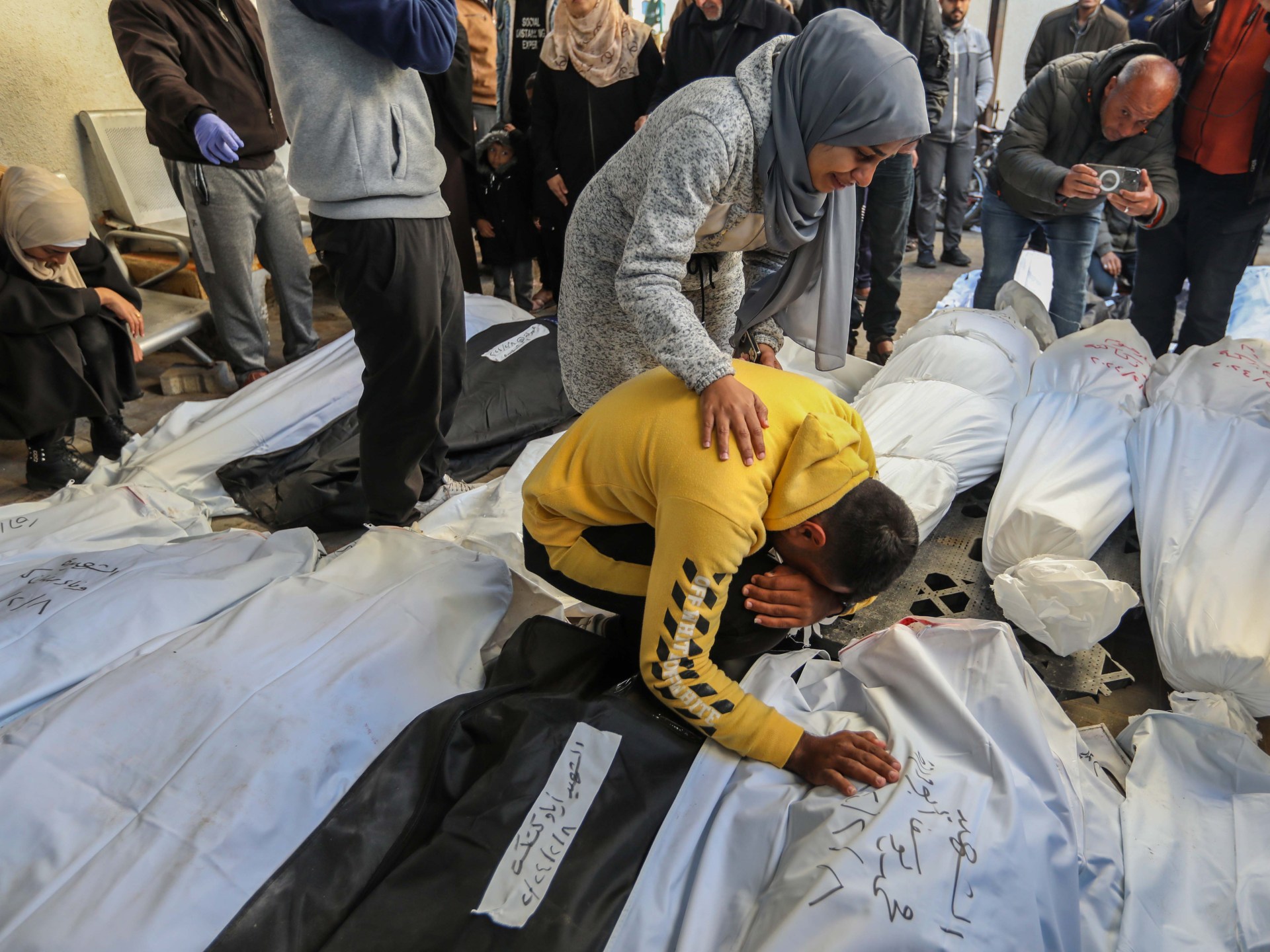
TEL AVIV, Israel (AP) — The bodies of three more hostages killed during the Oct. 7 Hamas attack on Israel were recovered from Gaza overnight, the Israeli army said Friday, as the United Nations' top court prepares to rule on whether Israel must halt its military operations and withdraw from the enclave.
The bodies of Hanan Yablonka, Michel Nisenbaum and Orion Hernandez Radoux were found and their families notified. The army said they were killed at the Mefalsim junction on the day of the attack and their bodies were taken to Gaza.
The announcement came less than a week after the army said it had found the bodies of three more Israeli hostages killed on October 7.
In the October 7 attack, Hamas-led militants killed around 1,200 people, mostly civilians, and abducted around 250 others. About half of those hostages have since been released, most in exchange for Palestinian prisoners held in Israel during a week-long ceasefire in November.
According to Israel, about 100 hostages are still being held in Gaza, and the bodies of at least 39 others are in the camp, and 17 hostage bodies have been recovered.
Israeli Prime Minister Benjamin Netanyahu has promised to destroy Hamas and release all hostages, but he has made little progress. He is under pressure to resign and the US has threatened to reduce its support because of the humanitarian situation in Gaza.
On Friday, Netanyahu said it was the country's duty to do everything possible to release the abductees – both those killed and those alive.
In a post on social media platform X on Friday, French President Emmanuel Macron expressed his condolences to the family of French-Mexican national Hernández-Radoux and said France remained committed to releasing the hostages.
The country also awaits a decision on Friday afternoon from the International Court of Justice, which is expected to rule on an urgent request from South Africa to order Israel to cease its operations. It is unlikely that Israel would comply with such an order. Nevertheless, a ceasefire order from the International Court of Justice judges would increase pressure on an increasingly isolated Israel.
When it comes to the hostages, Israelis are divided into two camps: some want the government to stop the war and release the hostages, while others believe that the hostages are a regrettable price to pay for the elimination of Hamas. The repeated negotiations mediated by Qatar, the United States and Egypt have achieved little.
Anger is growing at home over the government's handling of the hostage-taking.
Earlier this week, a group representing the hostages' families released new video footage showing the capture of five female Israeli soldiers by Hamas on October 7 near the Gaza border.
The video shows several of the young soldiers covered in blood and wounded. In one scene, a militant tells one of the frightened women that she is beautiful.
The video sparked further protests across the country demanding the release of the hostages.
The army said on Friday that the hostages were found during an operation in Jabaliya. Military spokesman Rear Admiral Daniel Hagari told a news conference that the army was able to recover the bodies because Israeli forces had revealed “important intelligence” obtained during an operation in Gaza last week.
The group representing the hostages' families said the bodies had been handed over to their families for burial.
Nisenbaum, 59, was a Brazilian Israeli from the southern city of Sderot. He was taken hostage while trying to rescue his four-year-old granddaughter.
Oryon Hernandez Radoux, 30, was abducted from the Nova music festival he was attending with his partner Shani Louk. Louk's body was one of those found by the army nearly a week ago.
Yablonka, 42, a father of two, was also abducted from the music festival. His family told the AP in December that he loved music. Yablonka's family had no news of him for nearly two months after he was abducted and did not know if he was alive or dead.
According to the Gaza Health Ministry, the Israeli offensive has killed more than 35,000 Palestinians since the war began, and has caused a humanitarian crisis and near-famine.
Although Hamas' capabilities have been weakened, the militants are regrouping after nearly eight months of war in some of the hardest-hit areas of northern Gaza and resuming rocket attacks on nearby Israeli communities. Israel says its forces are operating in Rafah in the south, central Gaza and Jabaliya in the north.
——
Associated Press reporters Melanie Lidman in Tel Aviv and John Leicester in Le Pecq, France, contributed






Recent Comments